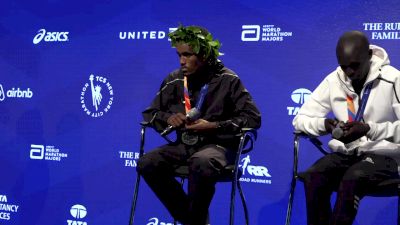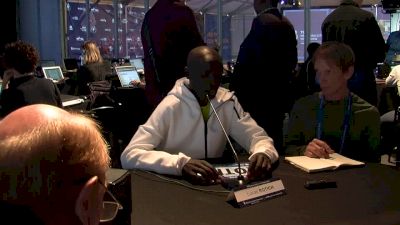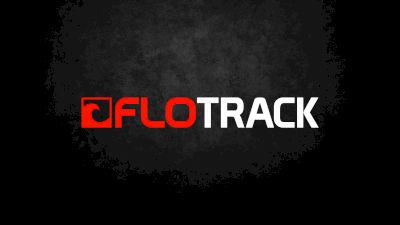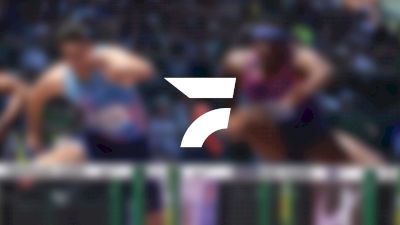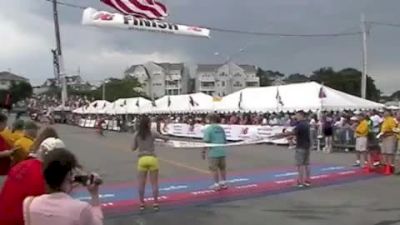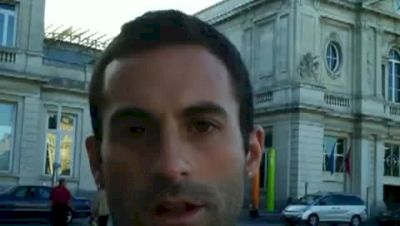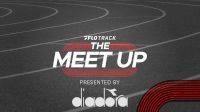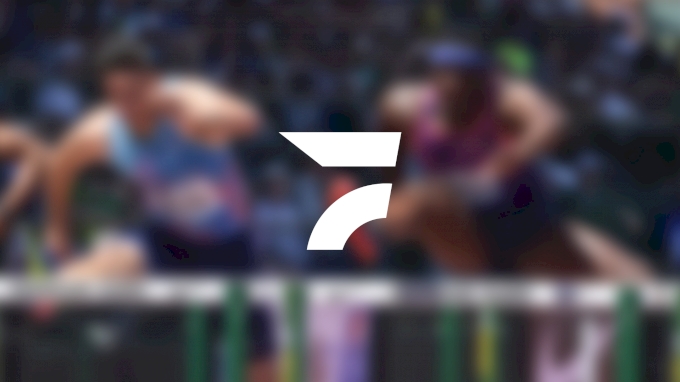
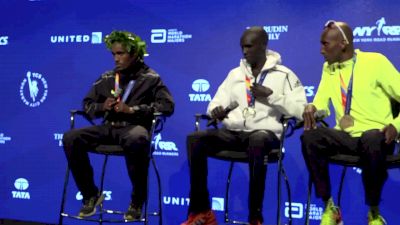
NYC Marathon men's podium press conference part 1
Nov 6, 2016
Transcript by ASAP Sports
Part 2 here
THE MODERATOR: Congratulations, Ghirmay Ghebreslassi. We will also bring out Lucas Rotich and Abdi Abdirahman.
Ghirmay, you were together with two other competitors coming over the Queensboro Bridge At 59th Street, and then we saw you fixing your uniform a little bit. Tell us what happened when you came off to First Avenue in New York.
GHIRMAY GHEBRESLASSIE: First off, I would like to thank you for the organizers of the New York City Marathon 2016. I would like to thank my managers from Global Sports Communication, as well as my coach, and for everybody here in New York.
Let me come back to your question. Especially with the shorts, it not fit a little bit for me. That's why I was pulling it down.
THE MODERATOR: First for your country and the youngest champion ever.
Lucas, you were here, and you won the UAE Healthy Kidney 10K. This is a little bit of a larger stage. Tell us about your race today.
LUCAS ROTICH: Firstly, I would say thank you for the organizers for inviting me for the marathon and also for the 10 kilometer Healthy Kidney.
I was well prepared for this race, but unfortunately, my friend took it from me today because I took it from him in Napa when we were running together. Today was his. He was stronger than me.
But I feel I am okay, and I am great to be number 2 for this race.
THE MODERATOR: Abdi, the old man, very good, third place. We also had an American third place on the women's side in Molly Huddle. Congratulations on making the podium today. You came from behind to finish third. Tell us about it.
ABDI ABDIRAHMAN: First and foremost, I want to thank to New York Road Runners and all the residents of the five boroughs in New York City because they make the race that much easier because it was packed from the beginning to the end.
My race plan today was to be competitive and stay at the top, make sure I'm always in the front group. When these two guys, when they made the big move at the 20K, that move was just too fast for me. So I just run my own race. I run with other guys until we get to the 26K. I didn't think I was going to finish third. I thought I might finish fifth, sixth, or seventh. When I passed Lelisa, that's when my eyes just -- I don't know what hit me, but I just get another wind. I said I'm third place, and I'm going to go for it.
From there on, I started pushing the pace, and the last mile it was just homestretch for me. So I relaxed.
THE MODERATOR: Where did you move into third place, Abdi?
ABDI ABDIRAHMAN: I think it was right before the 36K.
Q. Congratulations to all of you. Ghirmay, at mile 17 you really began to push the pace. Could you sense at that time your competitors were falling off a little bit and fading.
GHIRMAY GHEBRESLASSIE: As I explained in the last press conference, I didn't interest for everyone to win the race, what can happen. Whether they beat me or not, it doesn't matter to me.
In order to race them all, in order to race me, it's not good for us during the race. What I mean is I believe that to run only for time. If I run well with the time, I can be on position. That's why I prefer with the pacer. It's a little bit faster.
Q. Ghirmay, can you describe what it means to you to be the first winner of this New York Marathon from Eritrea?
GHIRMAY GHEBRESLASSIE: As I won for the first time in the World Championships, the first from Eritrea. So today it's the first time -- nobody has won any major marathon from Eritrea. It's just like the championship for me to be a winner in this race. So I'm really proud of it.
Q. Ghirmay, you were very confident coming into this race. You were confident in the press conference, and you ran very confident. What made you so confident coming into today?
GHIRMAY GHEBRESLASSIE: As we know, if you lose your confidence, you lose everything. What you did in training, also what you are going to do in the race, you can lose everything. So in order to be -- in order to achieve what you need during the race and before, you must have full confidence. If you lose your confidence means you are hopeless. If you lose your hope, you can't do anything.
That's why I believe to have my confidence first. All what I did in training in relation to the systems that I use during the race can make me to be the winner. I believe that anyone must be confident before.
Q. Abdi, your last marathon was two years ago in Boston, didn't go that well. Now you've just got your best marathon finish ever at a major. How did you get back to this level?
ABDI ABDIRAHMAN: I don't know if you've been following the running circuit, the beginning of the year, I was supposed to run the Olympic trials, but I got an injury, which I was ready. So I just took the time off, like about a month. I came back, run a lot of road races. I run a few half marathons. I run a 63 my first half marathon. I run the Bolder Boulder 10K, 30 in altitude. I run 28:40 for a 10K. So my buildup to this race, I run a Great North Run in Newcastle, half marathon 62 minutes. So that's how I came back. I just build on.
This was my main goal to do the marathon in New York City. So my training has been going well. I just didn't race a marathon. It was unfortunate I didn't do the trials. I was treating this as my Olympic trials for me because I didn't run the Olympic trials. So I told my manager, this is going to be my Olympic trials.
Q. Abdi, can you talk a little bit about what you were feeling like physically before you took the lead and what was kind of going through your mind in those last couple miles?
ABDI ABDIRAHMAN: When I took the lead the last couple miles, I was feeling all right. If I told you I was feeling good and I was confident, I would be lying to you. There's nothing guaranteed until you cross that finish line. There's three great athletes who were behind me, so all respect to them. I didn't think I had it until I came to the park and then 400 meters and then 200 meters to go. That's when I thought I had it.
But before that, my main goal was just to focus on my form, my breathing, and make sure I didn't give any distance. My main goal was just I want to keep the same pace they're running, so for them to catch me, they have to run something like 4:20 or 4:30 back to back, which is hard to do in the marathon. So that was my main goal.
Q. Lucas, you told us on Friday that you hoped to show that you could win a major marathon. On today's experience, do you think you can go forward now and win a major marathon?
LUCAS ROTICH: Unfortunately, I didn't win today, but to be on the podium was so important because this is my second time running Major Marathons. So I am happy that I'm on the podium, number 2. Also, I end the season good. I started in Japan. Coming today to New York number 2 for this is so perfect for me.
I am happy, but I didn't win because my friend was stronger than me. I appreciate it because he was strong.
Q. Ghirmay, first of all, congratulations on your win. What was the toughest part of the race for you today?
GHIRMAY GHEBRESLASSIE: Really I like the course, but the only thing which was difficult for me was only the wind. It was a little bit tough for me.
Q. Could you sense when the -- when Lucas was falling back a little bit? Did you know when you were starting to make a break?
GHIRMAY GHEBRESLASSIE: We were helping each other before he dropped back. Then after I look back once and he was a little bit far from me, and I was really a little bit angry with him because we were helping each other. I was thinking maybe others from behind can catch him. So I was a little bit competing with it. So I was okay.
THE MODERATOR: Ghirmay, just to give a little clarification, Larry said, was there anything during the race that was hard, and you said during the race. Was there anything outside of the race that was difficult or hard?
GHIRMAY GHEBRESLASSIE: No, there wasn't anything outside the race.
THE MODERATOR: Today was your day.
Q. Ghirmay, did you have a time in mind that you were trying to run?
GHIRMAY GHEBRESLASSIE: I don't have a specific time because I have never seen the course, how much it's hilly or downhill was it, for how long the course can have a flat area or something like that. I don't know. It was my first time. So just I was concentrating a lot only to run good time as much as possible. So I didn't set any specific time to run for today.
Q. Abdi, I believe that you are the oldest man ever to finish in the top three of this race. What do you think about that?
ABDI ABDIRAHMAN: For me, I don't think I'm the oldest. Age is just a number to me, so I don't know. To be honest, I don't look at it like that. I'm 38 years old. Age is just a number to me, but at the same time, I believe you can do anything you put in your mind to it.
I enjoyed it. It was a great race. I don't look at my age as a disadvantage or advantage. Actually, I kind of look at it as an advantage because I knew the course and I've run it and I've been around a long time. I was telling these guys I was in the Olympics in 2000, and they were looking at me, really? And I say yes.
THE MODERATOR: What we all like to hear, that age is just a number.
Q. What advice would you give a 20-year-old marathoner about making sure he has a long career?
ABDI ABDIRAHMAN: For a long career, just like don't try to make as much money as you can for one year. That's short and clear because like you can run three marathons and make a lot of money in one year, but your career will be over within three years. If you want to have a long career, longevity, enjoy life, do two or one marathon a year and just enjoy the moment and just make sure you're doing the right training. Stay with the same coach. Have the same routine. That's my advice.
THE MODERATOR: Very great advice, Abdi, to Ghirmay and us all. Take notice. Congratulations to all of you. We have a couple of presentations to make as well.
